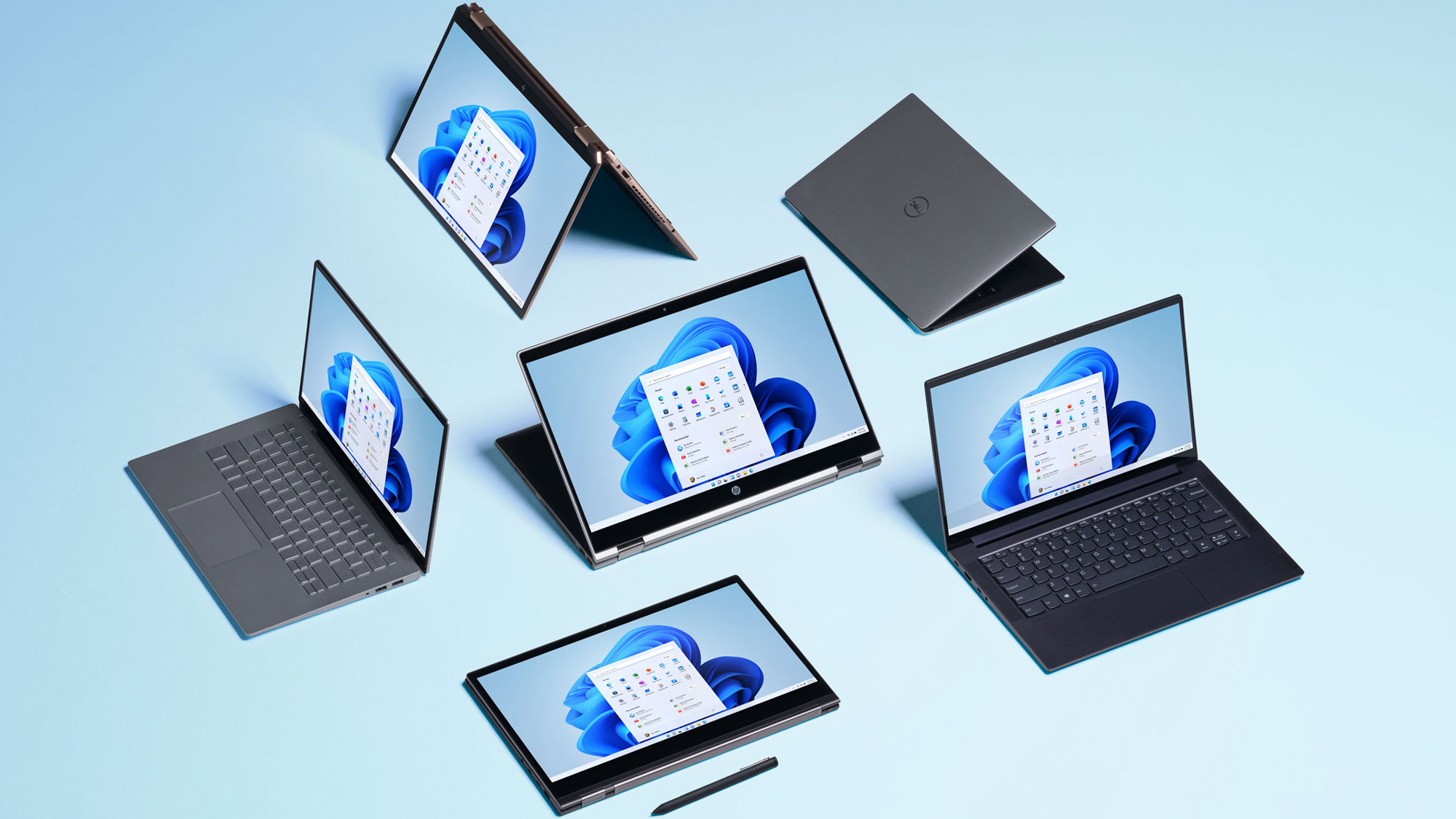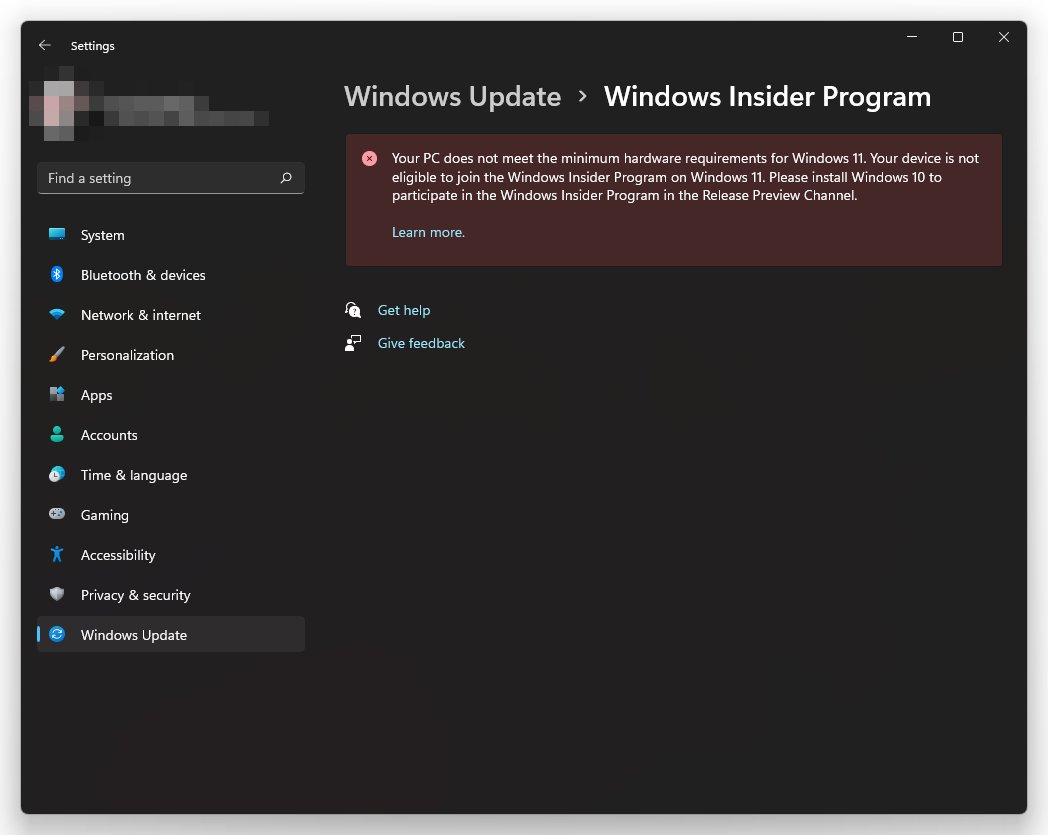Microsoft booting Windows 11 beta users if they don’t meet requirements
Microsoft is kicking out Windows 11 beta users if their PCs don't measure up

Editor's Note: After this story was published Microsoft clarified in a blog post that PCs which have been beta-testing Windows 11 via the Windows Insider Program and fail to meet both the Windows 11 minimum requirements and the less demanding Windows Insider Program requirements for beta-testing Windows 11 will no longer receive new builds of Windows 11. However, they will still receive cumulative updates for their current build, which can include security and bug fixes. An updated version of the original story follows.
Windows 11 is due for a full release on October 5, and reports are circulating today that Microsoft is starting to tell beta testers in the Windows Insider Program to roll back to Windows 10 if their PCs don't meet the Windows 11 system requirements.
This is a significant step along the path Microsoft is taking to bring Windows 11 to market, because it signals the company is wrapping up beta testing ahead of the full release. It probably also feels like a bit of a cold shoulder to folks who have been passionate about trying Windows 11, even if their PCs didn't meet Microsoft's requirements.
- The best Windows laptops
- How to install Windows 11 — a step-by-step guide
- PLUS: Xbox Series X could someday run Android apps
Presumably, Windows Insiders with PCs that didn't meet Windows 11's minimum requirements were allowed to install and test early versions of the OS in order to see how well it would (or wouldn't) run on unsupported hardware. That would explain why Microsoft loosened the initially strict Windows 11 system requirements after some internal testing, adding some older 7th-gen Intel processors to the list of CPUs compatible with Windows 11.
Now, based on a screenshot posted to Twitter by BetaWiki, it looks like some Windows Insiders are seeing the message that "your device is not eligible to join the Windows Insider Program on Windows 11" when they try to sign up, and are being told to participate in the Windows 10 channel of the program instead. ZDnet reports that a trusted source who had been testing Windows 11 on an ineligible PC has also seen the same message after doing a clean install and attempting to join the Windows Insider Program on Windows 11.

This appears to run counter to the Windows 11 beta testing program plan Microsoft outlined in a June blog post. The post claimed that all Windows Insiders would be allowed to check out Windows 11 updates, even on PCs not meeting the minimum requirements, until the operating system became generally available — at which point they might have to roll back to Windows 10.
Microsoft has since clarified in a blog post that PCs which were allowed to participate in the Dev Channel of the Windows 11 public beta test despite failing to meet the minimum system requirements were only allowed to stay in until the version of Windows 11 which would be released to the general public was sent around for testing. Now that those on the Dev Channel are beta-testing versions of Windows 11 which will be released after the operating system ships, anyone with a PC that fails to meet both the Windows 11 minimum requirements and the less demanding Windows Insider Program requirements (which gave participants a pass if they didn't meet the minimum CPU and TPM expectations) for beta-testing Windows 11 will no longer receive new builds of Windows 11. However, they will still receive cumulative updates for their current build, which can include security and bug fixes.
Sign up to get the BEST of Tom's Guide direct to your inbox.
Get instant access to breaking news, the hottest reviews, great deals and helpful tips.
It's a strong rebuke from a company that has so far been more bark than bite when it comes to setting minimum requirements for its next big Windows release. In addition to expanding the list of acceptable CPUs, Microsoft has confirmed that you can install Windows 11 on older PCs that don't meet the Windows 11 system requirements if you use the official .ISO instead of upgrading through Windows Update. On those machines, Windows 11 will run in an "unsupported state" that may cause you to miss out on important security fixes and Windows updates. This also means you technically don't need a TPM 2.0 chip in order to run Windows 11, according to Microsoft. An older TPM 1.2 chip will still work, albeit with the caveat that your copy of Windows will be unsupported and potentially more vulnerable to attack.
But it appears that if you're planning on trying out the Windows 11 beta on an unsupported PC, you might be out of luck — and stuck on Windows 10 for the foreseeable future. Luckily, Microsoft has promised to continue supporting it through October of 2025.

Alex Wawro is a lifelong tech and games enthusiast with more than a decade of experience covering both for outlets like Game Developer, Black Hat, and PC World magazine. A lifelong PC builder, he currently serves as a senior editor at Tom's Guide covering all things computing, from laptops and desktops to keyboards and mice.
